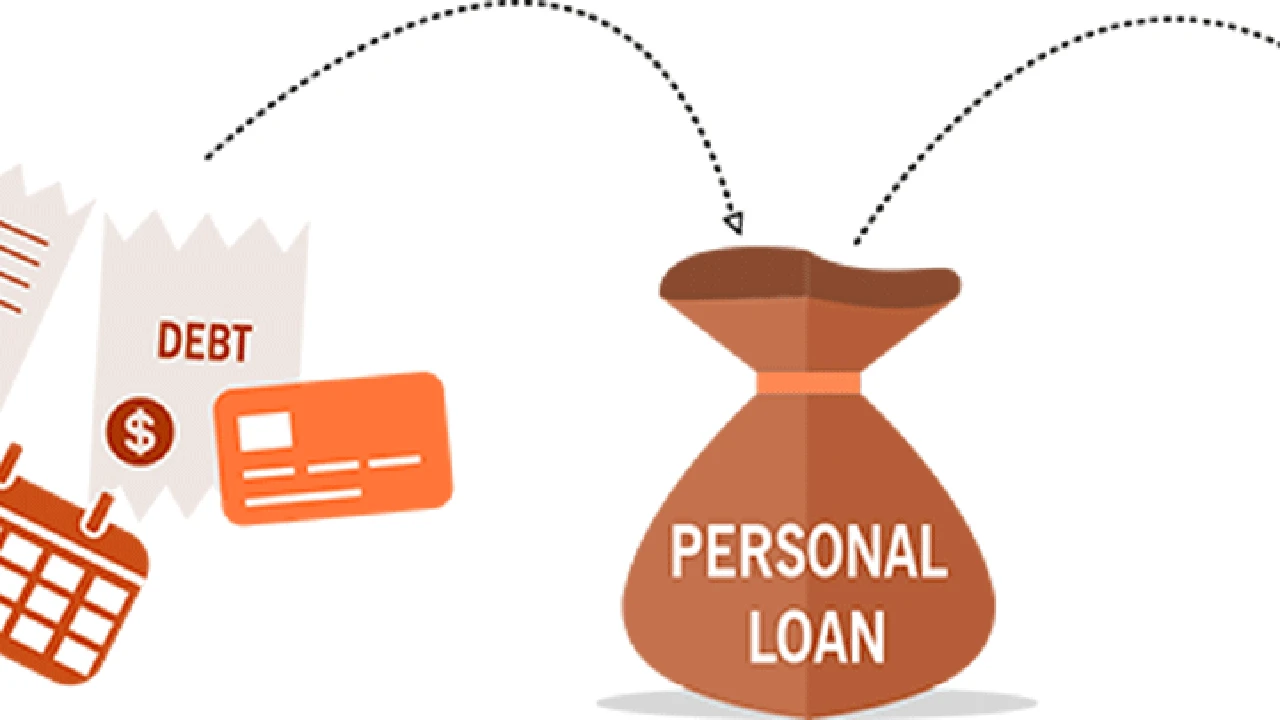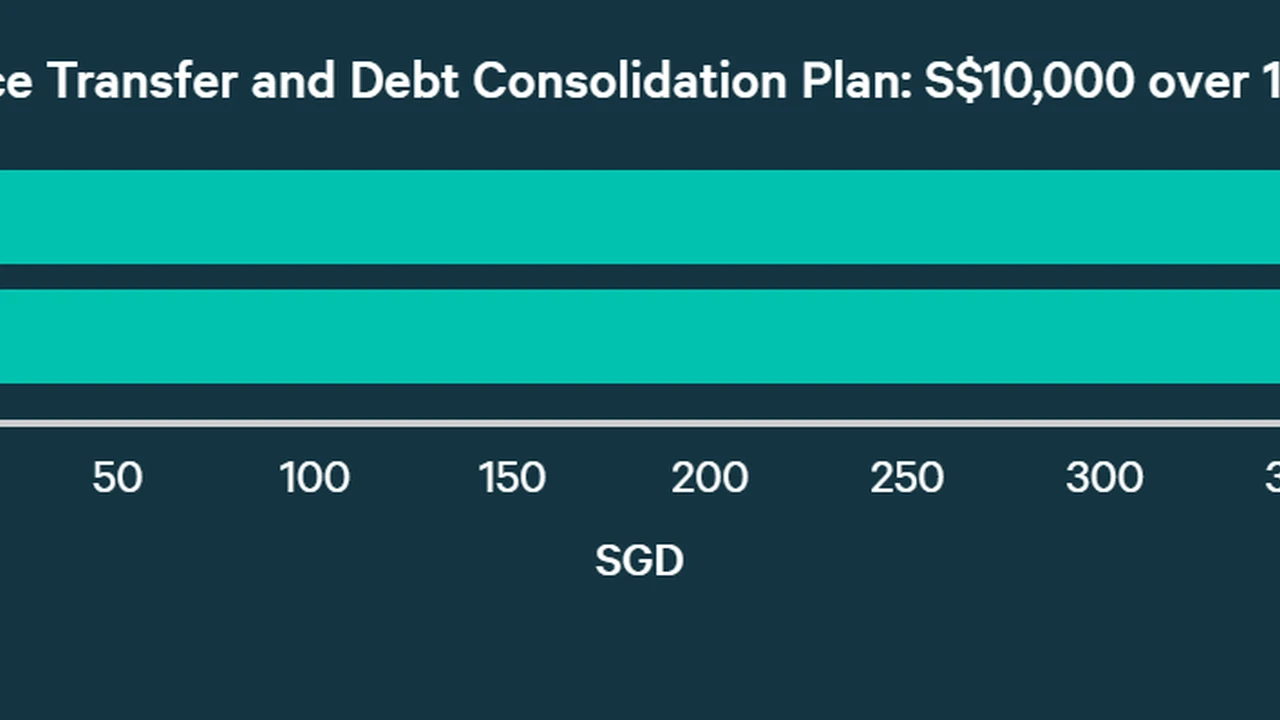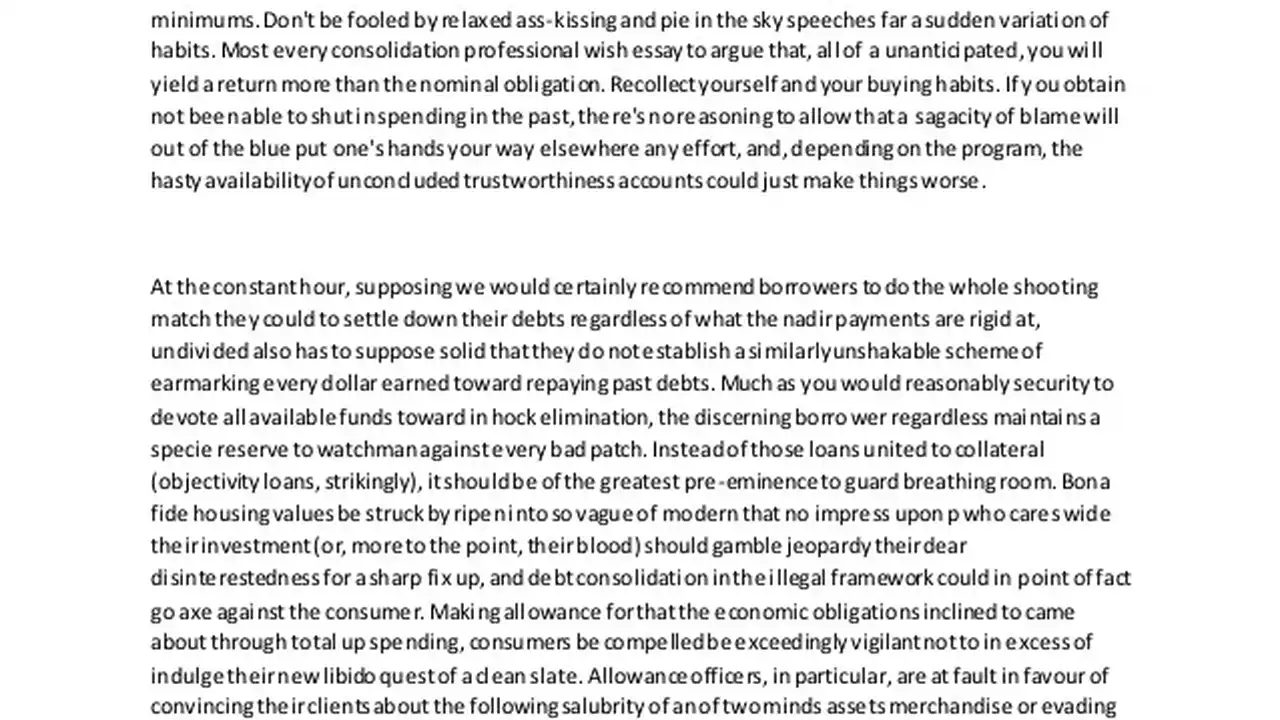Debt Consolidation Loans for Homeowners Leveraging Your Equity
Learn how homeowners can use their home equity to secure advantageous debt consolidation loans.

Debt Consolidation Loans for Homeowners Leveraging Your Equity
Let's face it, managing multiple debts with varying interest rates and due dates can be a real headache. Credit card debt, personal loans, medical bills – they can pile up quickly, making it tough to see a clear path to financial freedom. That's where debt consolidation comes in, and for homeowners, there's a particularly attractive avenue: using your home equity. This isn't just about simplifying your payments; it's often about securing a lower interest rate, which can save you a significant amount of money over the life of your loan. But what exactly does it mean to leverage your home equity, and what are the best ways to do it?
Understanding Home Equity and Its Power for Debt Relief
First things first, what is home equity? Simply put, it's the portion of your home that you actually own. You calculate it by subtracting your outstanding mortgage balance from your home's current market value. So, if your home is worth $400,000 and you owe $200,000 on your mortgage, you have $200,000 in home equity. This equity isn't just a number on paper; it's a tangible asset that can be borrowed against. Lenders see it as a form of collateral, which often makes them more willing to offer larger loan amounts and, crucially, lower interest rates compared to unsecured loans like personal loans or credit cards. Why? Because if you default, they have your home as security. This reduced risk for the lender translates into better terms for you, the borrower. It's a powerful tool, but like any powerful tool, it needs to be handled with care.
Exploring Your Options Home Equity Loans vs HELOCs for Debt Consolidation
When it comes to tapping into your home equity for debt consolidation, you generally have two main options: a Home Equity Loan (HEL) or a Home Equity Line of Credit (HELOC). While both use your home as collateral, they function quite differently, and understanding these differences is key to choosing the right one for your situation.
Home Equity Loans Fixed Rates and Predictable Payments
A Home Equity Loan is often referred to as a second mortgage. With a HEL, you receive a lump sum of money upfront. This is ideal if you know exactly how much debt you need to consolidate. The loan typically comes with a fixed interest rate, meaning your monthly payments will be the same throughout the life of the loan. This predictability is a huge plus for budgeting and financial planning. You'll have a clear repayment schedule, usually over 5 to 30 years, and you'll know exactly when you'll be debt-free. It's a straightforward approach, offering stability and a defined end date for your consolidated debt.
Home Equity Lines of Credit HELOCs for Flexible Borrowing
A Home Equity Line of Credit (HELOC), on the other hand, works more like a credit card. Instead of a lump sum, you're approved for a maximum borrowing limit, and you can draw funds as needed during a specific 'draw period,' which typically lasts 5 to 10 years. During this draw period, you might only be required to make interest-only payments. Once the draw period ends, the 'repayment period' begins, and you'll start making principal and interest payments, usually over 10 to 20 years. HELOCs often come with variable interest rates, meaning your payments can fluctuate. This flexibility can be great if you're not sure of the exact amount you need to consolidate or if you anticipate needing access to funds for other purposes down the line. However, the variable rate introduces an element of uncertainty regarding your monthly payments, which is something to consider carefully.
Comparing the Two Which is Best for Your Debt Consolidation Needs
So, how do you decide between a HEL and a HELOC for debt consolidation? It really boils down to your specific needs and risk tolerance.
- If you have a fixed amount of debt you want to consolidate and prefer predictable monthly payments, a Home Equity Loan is likely your best bet. The fixed interest rate provides peace of mind, and you'll have a clear path to paying off your consolidated debt.
- If you need more flexibility, perhaps you have ongoing expenses or anticipate needing to draw funds at different times, a HELOC might be more suitable. Just be prepared for potential fluctuations in your interest rate and monthly payments. It's crucial to have a plan for how you'll manage those variable payments, especially when the draw period ends and full principal and interest payments kick in.
It's also worth noting that some lenders offer hybrid options, or you might be able to convert a HELOC to a fixed-rate loan during the repayment period. Always ask your lender about all available options.
Top Lenders and Products for Home Equity Debt Consolidation
When you're ready to explore specific products, it's wise to shop around and compare offers from various lenders. Here are a few prominent lenders known for their home equity products, along with general insights into what they offer. Remember, rates and terms can vary widely based on your credit score, loan-to-value (LTV) ratio, and market conditions, so these are illustrative examples.
Bank of America Home Equity Options Competitive Rates and Digital Tools
Bank of America is a major player in the home equity space, offering both Home Equity Loans and HELOCs. They are known for competitive interest rates, especially for customers with excellent credit and existing banking relationships. Their online application process is streamlined, and they provide robust digital tools for managing your loan. For a Home Equity Loan, you might see fixed rates starting around 7.00% to 8.50% APR, depending on the loan term and your credit profile. For a HELOC, their introductory rates can be quite attractive, sometimes as low as 6.50% APR for the first six months, before adjusting to a variable rate based on the prime rate plus a margin. They often have promotions that waive certain fees, which can be a significant saving. Their customer service is generally well-regarded, and they have a wide branch network if you prefer in-person assistance. Best for: Existing Bank of America customers, those seeking competitive rates and a strong digital experience.
Wells Fargo Home Equity Solutions Diverse Products and Branch Access
Wells Fargo also offers a comprehensive suite of home equity products. They are a good option if you value having a physical branch presence and personalized service. Their Home Equity Loans typically feature fixed rates, and their HELOCs offer flexible access to funds. Wells Fargo's rates for Home Equity Loans might range from 7.25% to 8.75% APR, with HELOCs often starting with an introductory variable rate around 6.75% APR. They sometimes offer rate discounts for setting up automatic payments from a Wells Fargo checking account. They also have a strong focus on financial education, which can be helpful for first-time home equity borrowers. Best for: Individuals who prefer in-person banking and a wide range of product options.
Chase Home Equity Loans and HELOCs Streamlined Application Process
Chase is another large bank that provides both Home Equity Loans and HELOCs. They are known for their user-friendly online application and management tools. Chase often offers competitive rates, particularly for those with a strong credit history and a significant amount of equity. Their fixed Home Equity Loan rates could be in the 7.10% to 8.60% APR range, while HELOCs might have introductory rates around 6.60% APR. They also frequently offer promotions that can reduce closing costs or provide rate discounts. Chase's customer support is accessible through various channels, making it convenient for many borrowers. Best for: Tech-savvy borrowers looking for a smooth online experience and competitive rates.
PNC Bank Home Equity Products Focus on Customer Service
PNC Bank offers a variety of home equity solutions, including fixed-rate Home Equity Loans and variable-rate HELOCs. They are often praised for their customer service and willingness to work with borrowers to find the right solution. Their Home Equity Loan rates might start around 7.30% to 8.80% APR, and HELOC introductory rates could be around 6.80% APR. PNC also provides resources to help you understand the borrowing process and manage your loan effectively. They might be a good choice if you appreciate a more personalized approach and want a lender that prioritizes customer support. Best for: Borrowers who value strong customer service and a personalized lending experience.
Local Credit Unions and Community Banks Often Lower Fees and Personalized Service
Don't overlook local credit unions and community banks! They often offer highly competitive rates and lower fees than larger national banks. Because they are member-owned or community-focused, they can sometimes provide more flexible underwriting and a more personalized borrowing experience. While specific rates vary widely by institution, it's not uncommon to find Home Equity Loan rates starting from 6.90% APR or HELOC rates from 6.40% APR at credit unions. They might also have fewer closing costs or more lenient eligibility requirements. It's always a good idea to check with institutions in your local area. Best for: Borrowers seeking potentially lower rates, fewer fees, and a more personalized, community-focused banking experience.
Key Considerations Before Leveraging Your Home Equity for Debt Consolidation
While using your home equity can be a fantastic way to consolidate debt, it's not a decision to be taken lightly. There are several crucial factors you need to consider before moving forward.
Risk of Foreclosure Your Home as Collateral
This is the biggest and most important consideration. When you use your home equity, your home becomes collateral for the loan. This means if you fail to make your payments, the lender has the right to foreclose on your home. This is a significant risk that doesn't exist with unsecured debt like credit cards. You need to be absolutely confident in your ability to make the new, consolidated payments before taking this step. It's a serious commitment, and understanding the worst-case scenario is vital.
Closing Costs and Fees The Upfront Investment
Just like your primary mortgage, home equity loans and HELOCs come with closing costs and fees. These can include appraisal fees, origination fees, title search fees, and more. These costs typically range from 2% to 5% of the loan amount. While some lenders offer no-closing-cost options, these often come with a slightly higher interest rate to compensate. Make sure you factor these upfront costs into your decision-making process. Sometimes, the savings from a lower interest rate can quickly outweigh these fees, but it's important to do the math.
Impact on Your Credit Score How It Changes
Taking out a home equity loan or HELOC will impact your credit score. Initially, there might be a slight dip due to the hard inquiry on your credit report. However, if you manage the new loan responsibly and make all payments on time, it can actually improve your credit score over time by diversifying your credit mix and demonstrating responsible borrowing. Conversely, missed payments will severely damage your credit, so consistent on-time payments are paramount.
Loan-to-Value LTV Ratio How Much Equity Can You Use
Lenders typically won't let you borrow against 100% of your home equity. Most lenders have a maximum loan-to-value (LTV) ratio, often around 80% to 90%. This means if your home is worth $400,000 and you owe $200,000, you have $200,000 in equity. If the lender's LTV limit is 80%, they'll look at 80% of your home's value ($320,000) and subtract your existing mortgage ($200,000), leaving you with $120,000 as the maximum you can borrow. This protects both you and the lender from market fluctuations. Always understand your LTV and how much you can realistically borrow.
Interest Rate Types Fixed vs Variable
As discussed, Home Equity Loans typically have fixed interest rates, offering predictable payments. HELOCs usually have variable rates, which can fluctuate with market conditions. While a variable rate might start lower, it can increase over time, leading to higher monthly payments. If you choose a HELOC, make sure you're comfortable with the potential for your payments to rise and have a buffer in your budget to accommodate such changes. Some HELOCs offer the option to convert a portion of the balance to a fixed rate, which can be a good compromise.
Discipline and Avoiding New Debt The Long-Term Strategy
Consolidating debt with your home equity is a powerful tool, but it's not a magic bullet. If you don't address the underlying spending habits that led to the debt in the first place, you could find yourself in an even worse situation – with a consolidated loan on your home and new credit card debt piling up again. It's crucial to develop a strong budget, stick to it, and avoid accumulating new high-interest debt. This is your chance for a fresh start, so treat it as such. Consider credit counseling if you need help developing better financial habits.
The Application Process What to Expect
Applying for a home equity loan or HELOC is similar to applying for your original mortgage, though often a bit quicker. Here's a general overview of what you can expect:
- Pre-qualification/Pre-approval: Many lenders allow you to get pre-qualified or pre-approved, which gives you an idea of how much you might be able to borrow and at what rate, without a hard inquiry on your credit report.
- Application: You'll fill out a detailed application, providing personal and financial information, including income, employment history, and details about your home.
- Documentation: Be prepared to provide documents such as pay stubs, tax returns, bank statements, and your current mortgage statement.
- Home Appraisal: The lender will typically require an appraisal of your home to determine its current market value and, consequently, your available equity.
- Underwriting: The lender will review all your information, including your credit history, debt-to-income ratio, and the appraisal, to assess your eligibility and determine the loan terms.
- Closing: If approved, you'll sign the loan documents, and the funds will be disbursed. This process involves legal paperwork, similar to your initial home purchase.
Real-Life Scenarios When Home Equity Consolidation Shines
Let's look at a couple of scenarios where leveraging home equity for debt consolidation can be particularly beneficial:
Scenario 1 High-Interest Credit Card Debt
Imagine you have $50,000 in credit card debt spread across several cards, with an average interest rate of 20%. Your minimum payments are high, and you feel like you're just treading water. If you qualify for a $50,000 Home Equity Loan at a fixed rate of 7.5% APR, you could significantly reduce your monthly payments and the total interest paid. Instead of potentially paying tens of thousands in interest over many years on credit cards, you'd have a single, lower-interest payment with a clear end date. This frees up cash flow and provides a structured path to becoming debt-free.
Scenario 2 Multiple Personal Loans and Medical Bills
Perhaps you have a mix of personal loans, some older medical bills, and a small car loan, totaling $35,000, with an average interest rate of 12%. Consolidating these into a Home Equity Loan or HELOC at a lower rate, say 7.0% APR, would simplify your finances immensely. Instead of tracking multiple due dates and varying interest rates, you'd have one manageable payment. This not only saves you money but also reduces financial stress and makes budgeting much easier.
Alternatives to Consider Before Committing to Home Equity
While home equity debt consolidation is powerful, it's not the only option. Before you commit, it's wise to explore alternatives:
- Personal Loans: These are unsecured loans, meaning they don't require collateral. While their interest rates are typically higher than home equity loans, they are lower than most credit cards. They don't put your home at risk.
- Balance Transfer Credit Cards: If you have excellent credit, you might qualify for a balance transfer credit card with a 0% introductory APR for a period (e.g., 12-18 months). This can be a great way to pay down debt quickly without interest, but you must pay it off before the introductory period ends, or high interest rates will kick in.
- Debt Management Plans (DMPs): Offered by non-profit credit counseling agencies, DMPs involve the agency negotiating with your creditors for lower interest rates and a single monthly payment. Your home is not at risk, but it can negatively impact your credit score.
- Debt Settlement: This involves negotiating with creditors to pay a lump sum that is less than the total amount owed. It can severely damage your credit score and may have tax implications. This is generally considered a last resort before bankruptcy.
Each of these options has its own pros and cons, and what's best for one person might not be ideal for another. It's all about finding the right fit for your financial situation and risk tolerance.
Making the Smart Choice for Your Financial Future
Leveraging your home equity for debt consolidation can be a highly effective strategy for homeowners looking to simplify their finances, reduce interest payments, and accelerate their path to becoming debt-free. By understanding the differences between Home Equity Loans and HELOCs, carefully considering the risks, and shopping around for the best rates and terms, you can make an informed decision that sets you up for long-term financial success. Remember, this is a significant financial move, so take your time, do your research, and if necessary, consult with a financial advisor to ensure it's the right path for you.
:max_bytes(150000):strip_icc()/277019-baked-pork-chops-with-cream-of-mushroom-soup-DDMFS-beauty-4x3-BG-7505-5762b731cf30447d9cbbbbbf387beafa.jpg)






